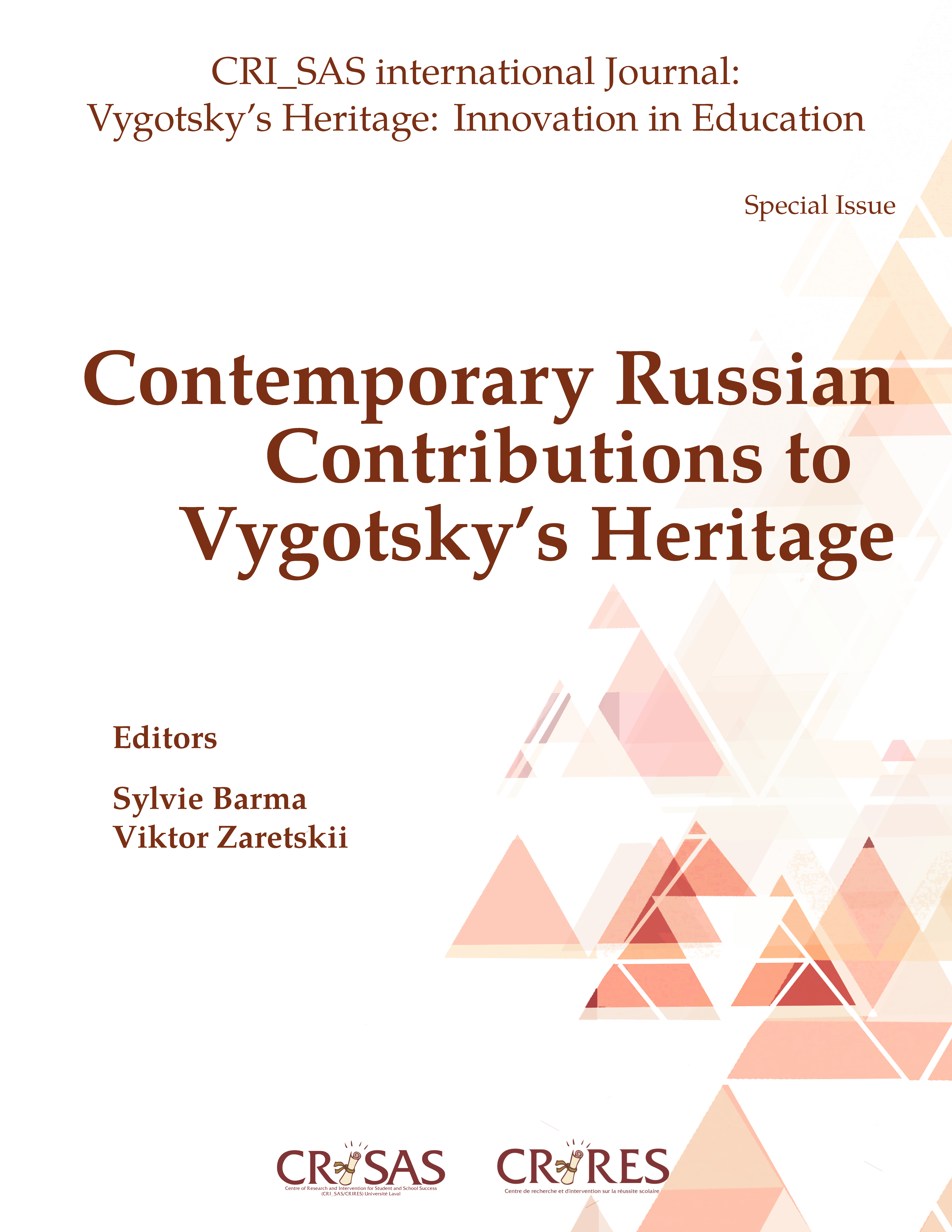The Perception of Art as a Higher Mental Function
DOI:
https://doi.org/10.51657/ric.v4i1.40995Abstract
The concept of higher mental functions applied to the perception of artworks. Considering art as a system of means for mastering of emotions and feelings, the authorshows that this interpsychic system of means for mastering the feelings and emotions through the pro-cessing of aesthetic experience is a conscious, mediated by speech and arbitrary dynamic system of artistic images perception and the processing of aesthetic experience. Perception of artworks becomes arbitrary, if a person realizes the cultural norm of relation to the arts, representing the ability and desire of the viewer to see in the artwork of thoughts and feelings appropriate to the author. The formation of art perception, like any other higher mental functions takes place in accordance with genetic law of cultural development according to which “Every function in the cultural development of the child appears on stage twice” (Vygotsky, 1983, p. 145). The author shows that the perception of art as a higher mental function is formed on the entire life through the perception of works of art and the assimilation of aesthetic experience. The approach to the analysis of perception of works of art proposed by author can find application in di˙erent social practices, from art pedagogy to art therapy; it allows to select the period of development of this function in childhood and adolescence as requiring the greatest attention by teachers and parents. The approach is applicable also in a psychological counseling and art therapy for adolescents and adults.
References
Guruzhapov, V. A. (1999). How to teach children to understand art. essays on the psychology of the generation of the meaning of the paintings and drawings. Moscow: RIA "My i mir".
Vasilyuk, F. E. (1984). Psychology experiences. Analysis of overcoming critical situations. Moscow: Izd-vo Mosk. University Press.
Vygotsky, L. S. (1968). Psychology of art. 2nd edition. Moscow: Iskusstvo.
Vygotsky, L. S. (1983). Collected works in 6 volumes. Vol. 3. Problems of psychic development. Moscow: Pedagogika.

